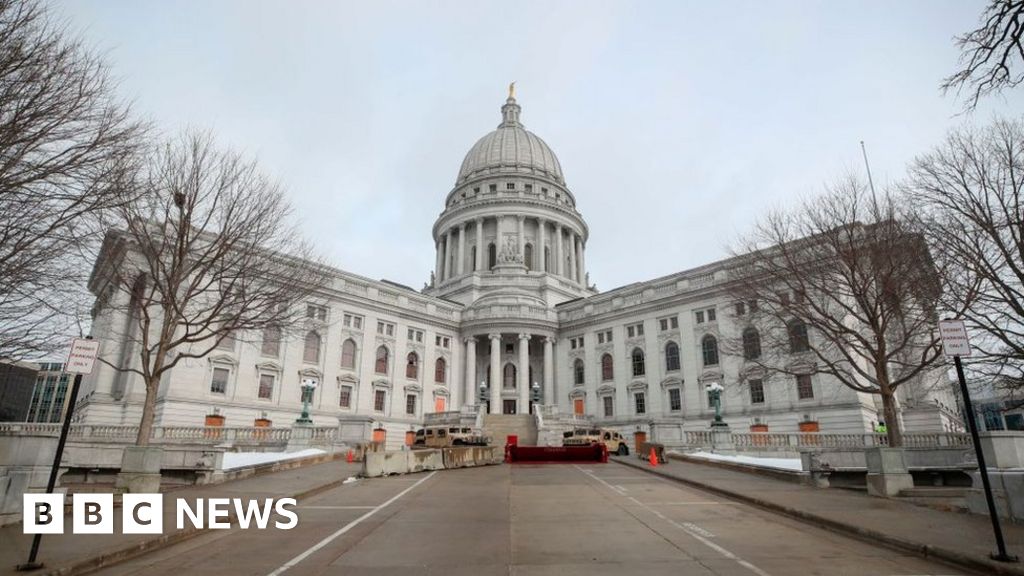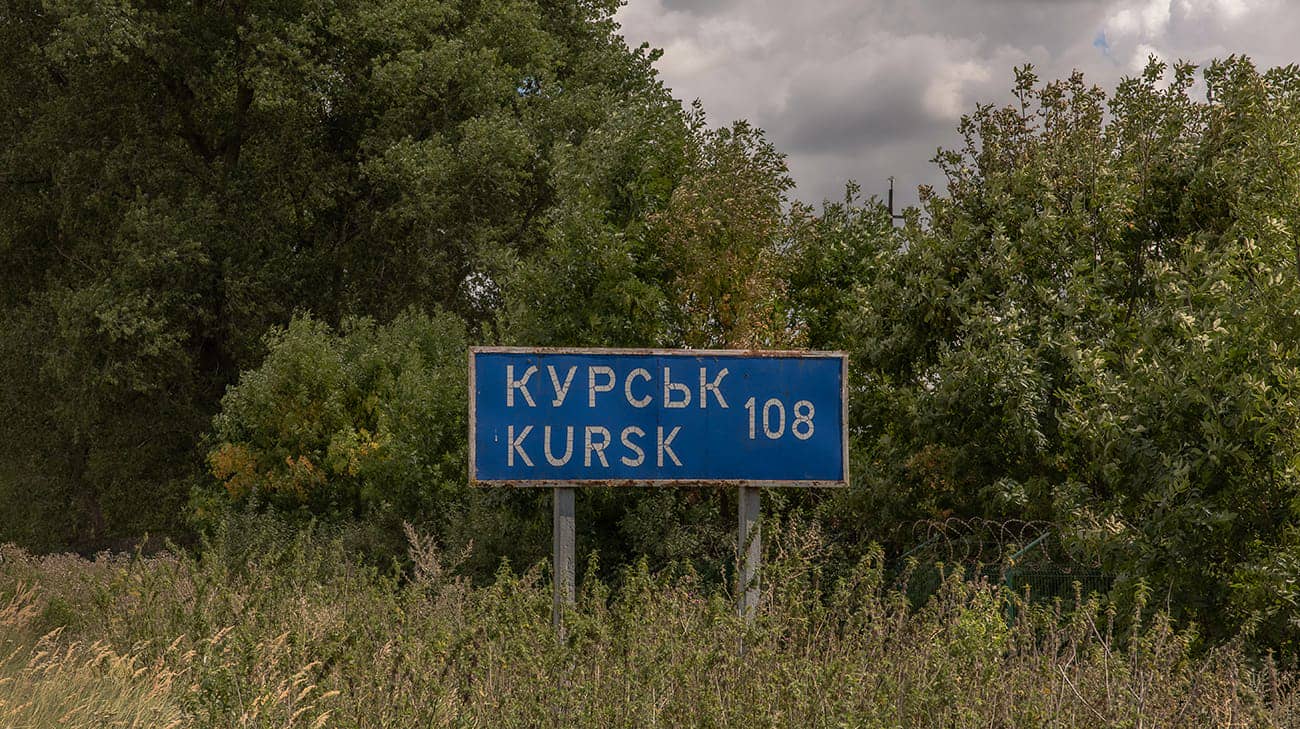Trump provokes anxieties with Greenland, Panama Canal military talk
President-elect Trump’s refusal to rule out military action to attain his ambitions of acquiring the Panama Canal and Greenland has sparked some stern responses overseas and spurred a global debate over how seriously to take the incoming president. While it’s unclear how serious he is, the rhetoric alone has sparked concerns about imperialistic goals in...

President-elect Trump’s refusal to rule out military action to attain his ambitions of acquiring the Panama Canal and Greenland has sparked some stern responses overseas and spurred a global debate over how seriously to take the incoming president.
While it’s unclear how serious he is, the rhetoric alone has sparked concerns about imperialistic goals in his second administration, and what his endgame might be.
“It is obviously out of the question that the European Union would let other nations of the world attack its sovereign borders, whoever they are,” French Foreign Minister Jean-Noël Barrot said in a local radio interview.
German Chancellor Olaf Scholz added in a press conference Wednesday that it was a “fundamental principle of law” that “borders must not be moved by force.”
While analysts don't see the threats as serious, they do think they could impact global relations. Matt Zierler, associate professor of international relations at Michigan State University, said Trump’s threats were “not credible.”
“His negotiation style is to go for the extreme rhetorical threat and then pull back from there,” he said.
But Zierler argued the threats were still concerning because they could deteriorate relations with allies.
“Not only does it weaken those relationships, but these weakened relationships weaken security overall,” he said. “By the U.S. challenging the durability and stability of the international ties, you're just increasing the uncertainty.”
Trump has not laid out any concrete plans for acquiring Greenland or the Panama Canal but has made his desire for both clear in the days ahead of his inauguration on Jan. 20.
In a Tuesday press conference at his Mar-a-Lago estate in Florida, Trump, when asked if he could rule out military action or economic coercion to gain both countries, said “I can't assure you on either of those two.”
“I'm not going to commit to that. Now it might be that you'll have to do something,” he said. “But I can say this, we need them for economic security.”
Trump did rule out using military force against Canada, which he has suggested should merge with the U.S. to become the 51st state, saying he would seek to use "economic force" instead.
Trump claimed the Panama Canal was being controlled by China and expressed regret that it was ceded to Panama more than two decades ago.
Panamanian Foreign Minister Javier Martínez-Acha said Tuesday the canal was “nonnegotiable.”
“The only hands operating the canal are Panamanian and that is how it is going to stay,” he said, according to press reports.
The Panama Canal, one of two major shipping waterways in the world after the Suez Canal, was constructed by the U.S. from 1903 to 1914. In 1979, the canal was ceded to a joint Panamanian and U.S. agency, before complete control was given to Panama in 1999.
Will Freeman, fellow for Latin America studies at the Council on Foreign Relations, said Trump is likely after two things: reduced export prices for U.S. goods and Panama taking action to limit Chinese influence, as a Hong Kong company owns two of five ports at the canal.
Freeman said the pressure could work, citing the first Trump administration pushing Panama to halt a Chinese plan to build a major bridge over the canal.
“This is more of a rhetorical way of saying, ‘I'm willing to use a lot of pressure to extract concessions,’” he said. “Broadly speaking, pressure tactics, they could be plenty toxic and counterproductive for our relationships in the region. But I think that pressure ultimately only works if you have leverage, and the U.S. does have leverage.”
Trump also said the U.S. needs Greenland “for national security purposes,” claiming Russian and Chinese ships were “all over the place.”
“I've been told that for a long time, long before I even ran,” Trump said at the news conference. “People really don't even know if Denmark has any legal right to it, but if they do, they should give it up because we need it for national security.”
Greenlandic Prime Minister Múte Egede has said his country of some 56,000 people is not for sale. He has pushed for full independence, a move supported by Danish Prime Minister Mette Frederiksen.
Greenland has historically been a territory controlled by Denmark, but it won home rule in 1979 and earned semi-independent status in 2009, with the Danish government only controlling defense, security and foreign policy.
Trump, who expressed interest in buying Greenland in his first term, says the country is vital to America’s national security.
The U.S., which has a base on Greenland, Pituffik Space Base, has been working to combat Chinese and Russian ships in the Arctic, as new routes open due to climate change and melting ice.
China has also invested in Greenland in several parts of its economy. And Greenland has rare minerals used for key assets like electric vehicles, a vital resource because the U.S. is looking to pivot away from reliance on Chinese minerals.
Danish Foreign Minister Lars Løkke Rasmussen said the country is “open to a dialogue with the Americans on how we can possibly cooperate even more closely than we do to ensure that the American ambitions are fulfilled,” according to Reuters.
James Rogers, executive director of the Cornell Brooks School Tech Policy Institute at Cornell University and an expert on Greenland and the Arctic, said Copenhagen has neglected Greenland and Trump is trying to boost its security commitment.
Rogers pointed to Denmark investing $1.5 billion into Greenland’s security, a major new package that officials had at one point discussed putting fewer dollars toward, and which came just days after Trump’s initial comments about the Arctic nation.
“Trump's already succeeding in some of those plans,” he said, adding Trump “may well want to have an increased military presence [amid] tensions with Russia and China. Greenland hosts, of course, a large amount of sensors and monitoring units, making sure that they are keeping an eye on the skies above that region.”
He said Trump may also want “preferred access and preferred economic agreements” in Greenland for resources like rare earth minerals.
Some Trump allies have backed his idea to seize Greenland and the Panama Canal, including his son, Donald Trump Jr., who took a private trip to Greenland this week, and a key House Republican.
“It’s all American to dream big. It’s un-American to be scared of big dreams. I for one could not be more proud that President has the biggest visions for America,” wrote Rep. Brian Mast (R-Fla.), the chair of the House Foreign Affairs Committee, on the social platform X.
House Minority Leader Hakeem Jeffries (D-N.Y.) said Wednesday he was confused by Trump’s “obsession” with Greenland.
“What about the November presidential election had anything to do with invading Greenland or seizing it by force?” Jeffries said.
“The problem is not Greenland … and the problem is not the Panama Canal. It’s making sure that the American dream is brought to life for everyone in this nation.”



